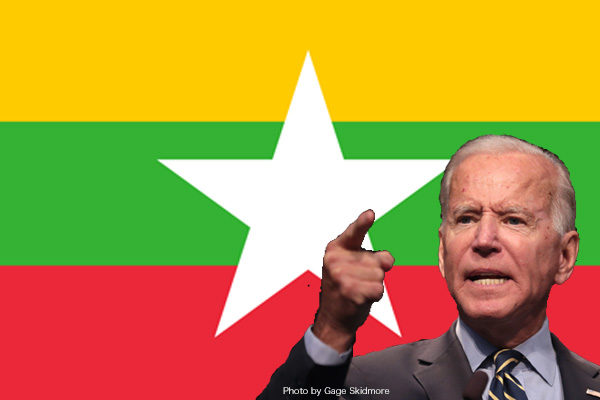Ever since resource-rich Myanmar gained independence, the military has been the only functioning institution in that multiethnic country, which remains troubled by ethnic insurgencies in its north and northeast. Yet, even after the military a decade ago began a gradual process of democratization, the West did not invest in building ties with that institution. Instead the West invested its political capital on one individual, Aung San Suu Kyi, turning her into a virtual saint and then expressing disappointment over her leadership in the plight of 700,000 Rohingya.
This month’s coup has exposed the biggest weakness in American policy on Myanmar — the failure to establish ties with that country’s military. In fact, the U.S. turned its back on the military by imposing sanctions in November 2019 on the commander-in-chief of Myanmar’s armed forces, Senior General Min Aung Hlaing, and his deputy, General Soe Win. Labeling the exodus of Rohingya Muslims as “ethnic cleansing,” the U.S. began slapping Myanmar’s military commanders from December 2017 with targeted visa restrictions and financial sanctions under the Global Magnitsky Act.
Worst policy choice: strengthening sanctions
The U.S., however, wrongly assumed that, by refusing to establish ties with Myanmar’s military and by slapping its top generals with sanctions, it could seek to weaken the military’s clout in domestic affairs without affecting democratization or the bilateral relationship. It failed to recognize a simple truth — that the military’s full support was the key to continued democratization, or else Myanmar would return to military rule.
Instead of seeking to incentivize the military’s backing of continued democratization, the U.S. did the opposite: Its sanctions campaign removed all incentives for Myanmar’s generals to stay the course. Such a “no carrots, all stick” approach, even as democratization advanced, encouraged the military leaders to seize the reins of power from an elected government. America’s serious miscalculation on Myanmar has left Washington with little leverage over the new military regime.
Today, the worst policy choice for the U.S. would be to return to the period before 2012 when crippling American-led sanctions for almost a quarter of a century drove a reluctant Myanmar into China’s arms. Such a return will only compound the U.S. policy failure on Myanmar. An American-sponsored international isolation of Myanmar will serve as a strategic boon for Chinese despot Xi Jinping’s regime to aggressively advance its interests in that country.
Consultation with Japan and India is a must
Myanmar’s strongly nationalistic military distrusts China, which it believes has been aiding insurgent groups in order to exert leverage over Myanmar’s government and armed forces. Myanmar’s generals, in fact, were concerned that Suu Kyi was becoming too cozy with Xi. That coziness was on full display when, 13 months ago, Xi signed no less than 33 bilateral agreements during a visit to Myanmar — the first by a Chinese leader in almost two decades.
The generals initiated the democratization process to help reduce Myanmar’s dependence on China and balance its foreign policy by rebuilding economic and political relationships with democratic powers. Today, the last thing the generals want is for their country to be drawn into China’s orbit again.
Against this background, the U.S. would do well to pursue a cautious and pragmatic approach to Myanmar that relies less on sanctions and more on incentives. It must consult with its allies and partners, especially Japan and India that have made major economic investments in Myanmar and built cooperative partnerships with the military there. The policies of India, which shares long land and sea frontiers with Myanmar, and Japan have sought to offset Chinese influence in that strategically located country.
Brahma Chellaney is a professor of strategic studies at Center for Policy Research, New Delhi.


